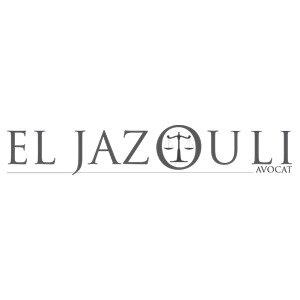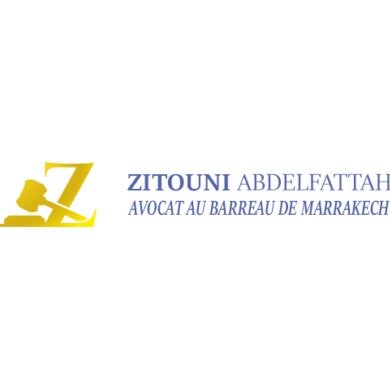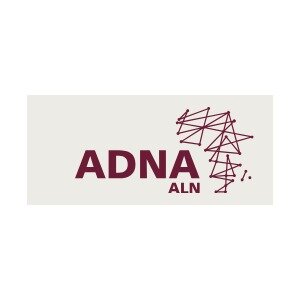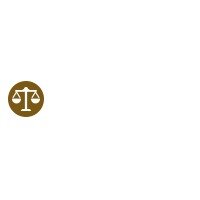Best ESG Advisory & Compliance Lawyers in Morocco
Share your needs with us, get contacted by law firms.
Free. Takes 2 min.
Or refine your search by selecting a city:
List of the best lawyers in Morocco
About ESG Advisory & Compliance Law in Morocco
Environmental, Social, and Governance (ESG) Advisory & Compliance law in Morocco covers the rules, regulations, and best practices that help companies and organizations align their operations with internationally recognized ESG criteria. This field ensures that entities operate sustainably, ethically, and transparently, taking into account environmental protection, social responsibility, and sound governance. With Morocco's ongoing commitment to sustainable development and international agreements such as the Paris Agreement, ESG compliance is becoming increasingly important for both local and international businesses operating in the country.
Why You May Need a Lawyer
Navigating the ESG landscape in Morocco can be complex. You may need a lawyer specializing in ESG Advisory & Compliance for several reasons:
- Assessing your company's current ESG risks and exposures
- Understanding new ESG regulations and how they affect your operations
- Implementing compliance frameworks and policies within your company
- Drafting and reviewing ESG-related reporting and disclosures
- Responding to government or regulatory inquiries about ESG practices
- Representing your interests during investigations or litigation concerning ESG matters
- Providing training to staff about new ESG obligations and best practices
- Supporting mergers and acquisitions with ESG due diligence
Local Laws Overview
Morocco has actively advanced its ESG regulatory framework in recent years, integrating both domestic priorities and international obligations. Key aspects include:
- Environmental Regulations: Morocco has enacted laws on environmental protection, notably Law 11-03 on the protection and enhancement of the environment, and Law 13-03 on air pollution. There are also regulations covering waste management, biodiversity, and sustainable use of natural resources.
- Social Compliance: Labour laws (such as the Moroccan Labor Code) set minimum standards for worker treatment, health and safety, gender equality, and anti-discrimination. Companies are also expected to respect international social standards, especially if they export goods or services.
- Governance Standards: Financial market regulators such as the Moroccan Capital Market Authority (AMMC) and Casablanca Stock Exchange have issued guidance on corporate governance, transparency, and disclosure for listed companies. Strong governance is also increasingly required for access to finance and foreign investment.
- ESG Reporting: While not yet mandatory for all, Morocco is progressing toward broader ESG reporting requirements, especially for publicly listed and large companies. International standards like the GRI (Global Reporting Initiative) and the UN Sustainable Development Goals (SDGs) are influential.
- Climate Commitments: Morocco is a signatory to the Paris Agreement and committed to significant renewable energy targets and CO2 reductions, shaping expectations for corporate ESG performance.
Frequently Asked Questions
What does ESG stand for?
ESG stands for Environmental, Social, and Governance. It refers to the three main criteria used to measure the sustainability and societal impact of a company or business.
Is ESG compliance mandatory in Morocco?
Some ESG elements are legally required, such as environmental impact assessments for certain projects, and labor and governance standards. Comprehensive ESG reporting is increasingly encouraged and may become mandatory for additional sectors in the coming years.
Which companies in Morocco are required to follow ESG laws?
All companies must comply with applicable environmental, social, and governance laws. Additional requirements and reporting obligations apply to publicly listed companies, state-owned enterprises, and those in high-impact sectors like energy, mining, and manufacturing.
How does Morocco’s ESG regulatory environment compare to other countries?
Morocco is considered a regional leader in sustainable development with advanced environmental and renewable energy laws compared to many neighboring countries. The legal framework is evolving in line with international standards.
What are the penalties for non-compliance with ESG laws in Morocco?
Penalties can include administrative fines, project delays or shutdowns, loss of licenses, civil liability, or reputational damage. In serious cases, criminal prosecution is also possible, particularly for environmental violations.
How can a lawyer help with ESG compliance in Morocco?
Lawyers provide guidance on current and upcoming ESG regulations, support reporting and disclosure, help design compliance frameworks, audit internal policies, and represent the company's interests during investigations or disputes.
Are there incentives for companies to improve their ESG performance?
Yes, Morocco provides various incentives, such as access to green finance, tax benefits for renewable projects, preferential terms in public procurement, and enhanced reputational standing for companies with strong ESG records.
What is the role of the Moroccan Capital Market Authority (AMMC) in ESG?
AMMC issues guidelines and oversees compliance for publicly listed companies, including transparency, corporate governance, and ESG disclosures, ensuring companies meet investor and regulatory expectations.
How does ESG affect foreign investment in Morocco?
Investors increasingly demand robust ESG standards from Moroccan companies as a condition for investment. ESG compliance can attract international funding and improve access to global markets.
What international ESG standards are recognized in Morocco?
Morocco recognizes and often aligns with international standards such as the Global Reporting Initiative (GRI), UN Sustainable Development Goals (SDGs), and OECD Principles of Corporate Governance.
Additional Resources
If you wish to learn more or seek support, consider contacting or consulting the following organizations:
- Moroccan Capital Market Authority (AMMC)
- Ministry of Energy Transition and Sustainable Development
- General Confederation of Moroccan Enterprises (CGEM)
- Moroccan Agency for Energy Efficiency (AMEE)
- National Human Rights Council (CNDH)
- Casablanca Stock Exchange
- Moroccan Labor and Social Compliance Auditors
- Major law firms and ESG consultants in Morocco
Next Steps
If you require legal assistance with ESG Advisory & Compliance in Morocco, follow these steps:
- Assess your specific needs, such as compliance gaps, upcoming projects, or required disclosures
- Gather relevant company policies, reports, licenses, and correspondence with authorities
- Contact a reputable law firm or an ESG advisory expert with experience in Moroccan and international ESG regulations
- Prepare a list of questions or challenges you face related to ESG
- Schedule a consultation to discuss your goals and receive tailored legal advice
Staying proactive and seeking expert legal guidance can help your organization navigate ESG responsibilities, minimize risks, and take advantage of opportunities in Morocco's dynamic regulatory environment.
Lawzana helps you find the best lawyers and law firms in Morocco through a curated and pre-screened list of qualified legal professionals. Our platform offers rankings and detailed profiles of attorneys and law firms, allowing you to compare based on practice areas, including ESG Advisory & Compliance, experience, and client feedback.
Each profile includes a description of the firm's areas of practice, client reviews, team members and partners, year of establishment, spoken languages, office locations, contact information, social media presence, and any published articles or resources. Most firms on our platform speak English and are experienced in both local and international legal matters.
Get a quote from top-rated law firms in Morocco — quickly, securely, and without unnecessary hassle.
Disclaimer:
The information provided on this page is for general informational purposes only and does not constitute legal advice. While we strive to ensure the accuracy and relevance of the content, legal information may change over time, and interpretations of the law can vary. You should always consult with a qualified legal professional for advice specific to your situation.
We disclaim all liability for actions taken or not taken based on the content of this page. If you believe any information is incorrect or outdated, please contact us, and we will review and update it where appropriate.
Browse esg advisory & compliance law firms by city in Morocco
Refine your search by selecting a city.

















